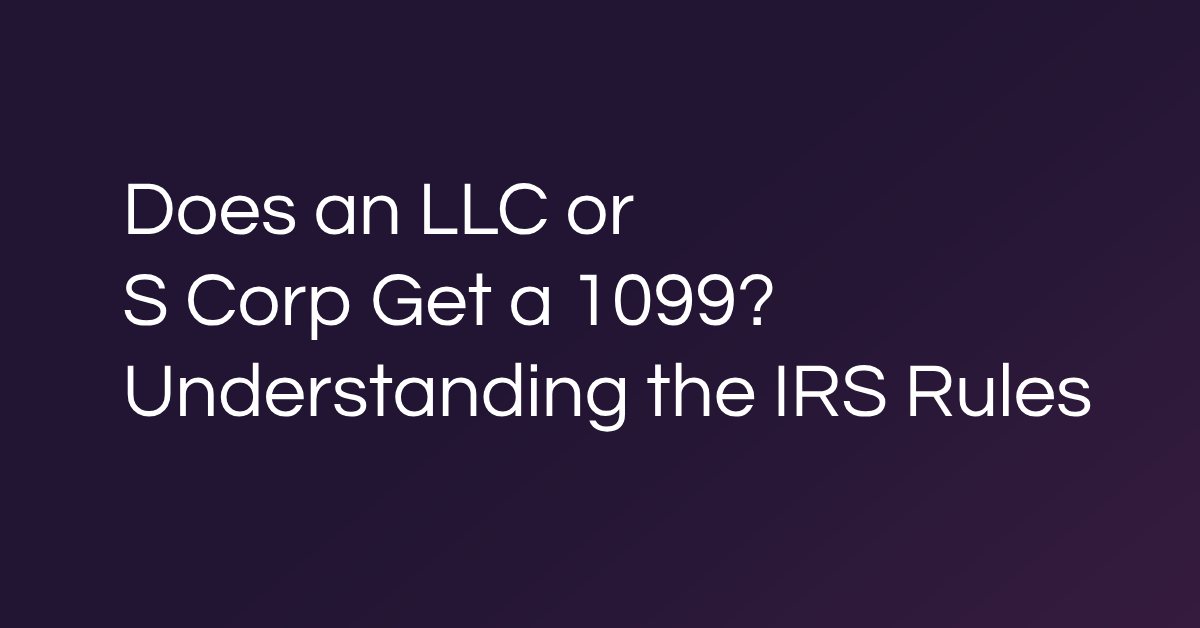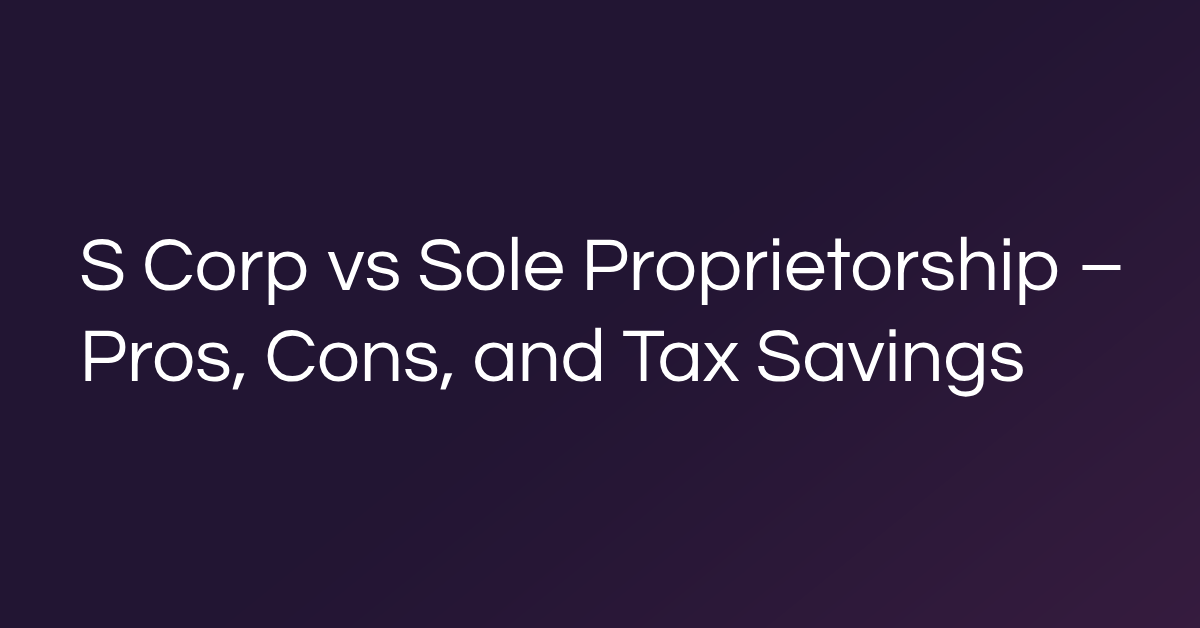For freelancers and solopreneurs running as a sole proprietor or single-member LLC, structuring your business as an S corporation can unlock significant tax savings while providing liability protection. However, many new S corp owners miss crucial steps, leading to compliance risks, tax penalties, or even loss of S corp status.
An S corp isn’t just about tax advantages — it’s a powerful tool for financial flexibility, personal asset protection, and business growth. While the tax benefits are appealing, mistakes in the setup process can limit those advantages or create compliance risks. Understanding what’s required upfront ensures you fully leverage the benefits while avoiding unnecessary financial or legal headaches.
Understanding the S corp structure and requirements
An S corporation isn’t a business entity but a tax election that allows qualifying LLCs and corporations to pass income, deductions, and credits directly to shareholders while avoiding double taxation.
Unlike a sole proprietorship or traditional C corporation, an S corp offers both tax efficiency and limited liability protection, making it a popular choice for business owners looking to scale, protect from taxes, without all the burden of a C Corp.
Businesses must meet specific requirements to maintain S corp status, including:
- Shareholder limits
- Stock restrictions
- Tax filing obligations
Businesses structured under this election must also adhere to payroll requirements and ensure reasonable compensation for owners to maintain compliance.
A key aspect of S corporation compliance is ensuring that business owners receive a salary that meets IRS standards. Without this, business owners may face tax reclassification, which can result in back taxes and penalties. Failing to meet these regulations can result in tax penalties or even revocation of S corp status. By structuring the business properly from the start, owners can maximize tax savings while ensuring compliance with IRS regulations.
Common mistakes to avoid when starting an S corp
Setting up an S corp can offer significant tax benefits, but missteps in the process can limit those advantages — or worse, create compliance issues. Many business owners rush the transition without fully understanding the key requirements. Avoiding these common mistakes can help ensure your S corp runs smoothly from the start.
Not understanding the Social Security cap
Many S corp owners overlook how Social Security taxes apply to their compensation. Unlike sole proprietors, who pay self-employment tax on all net earnings up to ~$176K, S corp owners only pay payroll taxes on their salary. However, wages exceeding the Social Security cap are no longer subject to Social Security tax, while distributions remain free from payroll taxes.
If owners don’t calculate this correctly, they could either overpay taxes or underpay, triggering IRS scrutiny. Proper planning ensures the right balance between salary and distributions.
Loss of allocation control
S corp owners don’t have the same flexibility as sole proprietors when it comes to distributing profits. Unlike an LLC, where members can divide profits however they choose, S corp earnings must be distributed based on ownership percentages.
For solopreneurs, this might not seem like an issue, but if bringing on investors or partners in the future, the structure of an S corp could limit how funds are allocated. Proper planning can help owners anticipate and mitigate these challenges.
Failing to set up payroll correctly
One of the most significant compliance issues for new S corps is payroll. Since owners must receive reasonable compensation before taking profit distributions, a formal payroll system is required.
Some business owners assume they can skip payroll and just take distributions, but this is a major red flag for the IRS. Failing to set up payroll correctly can lead to IRS penalties, back taxes, and interest charges. It’s critical to process payroll through an official system, withhold the right taxes, and maintain proper documentation.
Filing penalties and tax mistakes
S corps require strict tax compliance. Filing late, misclassifying income, or failing to meet federal and state reporting deadlines can result in costly penalties.
Many S corp owners underestimate the complexities of tax filings, assuming they’re the same as filing for a sole proprietorship or LLC. Missteps in tax filings often stem from misunderstanding IRS requirements, particularly regarding owner compensation and pass-through income. Using accounting software or professional services can prevent costly errors and help business owners stay compliant.
Mixing business and personal property or assets
Blurring the line between personal and business finances is a common mistake among S corp owners. Unlike sole proprietors, who report income directly on their tax returns, S corps require clear separation between business and personal accounts.
Commingling funds — such as using a business bank account for personal purchases — can trigger audits, complicate bookkeeping, and undermine liability protection. Establishing separate accounts and maintaining organized records ensures financial transparency and strengthens legal protections.
How to set up an S corp correctly
Starting an S corp goes beyond filing paperwork. To get the most out of S corp status, business owners need to establish clear financial structures, meet IRS requirements, and implement efficient accounting systems. Following these steps ensures compliance while optimizing tax benefits.
Register your S corp
The first step is forming an LLC or corporation in your state. This involves filing formation documents and paying state fees. Once the business entity is formed, the next step is filing IRS Form 2553 to elect S corp status. Choosing the proper business structure ensures compliance with tax regulations and liability protections. Filing on time matters — delays can push tax benefits to the following year.
Determine reasonable compensation
S corp owners must pay themselves a reasonable salary before taking profit distributions. The IRS expects this salary to reflect industry standards and the work performed.
Underpaying yourself to avoid payroll taxes can trigger IRS audits and penalties. Setting a fair salary based on experience, responsibilities, and business revenue keeps you compliant while optimizing tax savings.
Establish payroll, accounting, and bookkeeping systems
S corps require structured financial management. A payroll system ensures taxes are withheld correctly while accounting software simplifies record-keeping and tax reporting. Clear financial records prevent compliance issues and support business growth.
Build a strong foundation for your S corp
Starting an S corp is more than just an administrative step — it’s a strategic move that shapes your tax savings, liability protection, and financial future. Avoiding common mistakes from the start ensures your business operates efficiently and remains compliant with IRS regulations.
With Besolo’s Solo S Corp, freelancers and solopreneurs get expert-backed guidance on payroll, tax compliance, and financial management. From formation to ongoing support, Besolo simplifies the process so you can focus on growing your business.
Take the stress out of running an S corp. Join Besolo today and start building a business structure that works for you.











